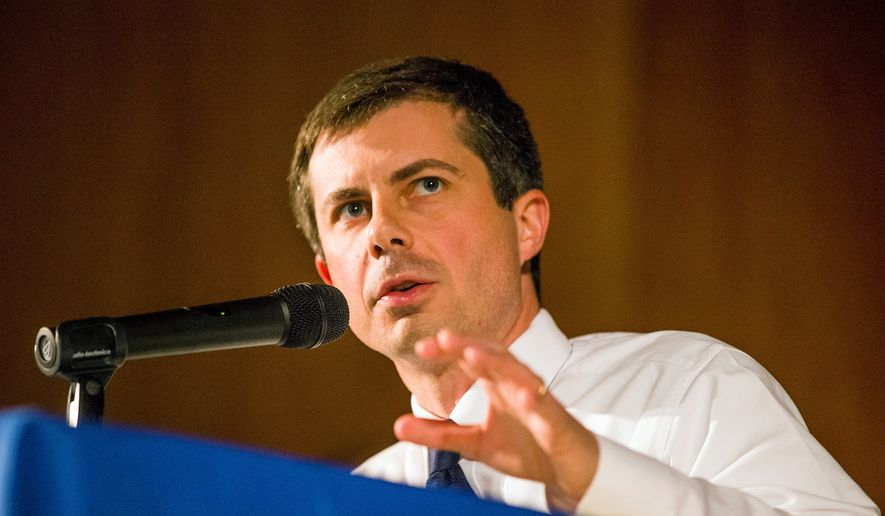Democratic presidential hopeful Pete Buttigieg on Thursday released a plan intended to combat systemic racism in America by boosting funds for historically black colleges and universities, promoting minority entrepreneurship and overhauling the criminal justice system, among other priorities.
Mr. Buttigieg, who previewed parts of the plan last month, is calling it the “Douglass Plan,” named after famous abolitionist and author Frederick Douglass.
“It’s very clear that as a consequence of systemic racism, black Americans have been excluded from the growth and the opportunity that our nation has provided,” said Mr. Buttigieg, the mayor of South Bend, Indiana.
He is vowing to increase funding for Historically Black Colleges and Universities (HBCUs) and other minority-serving institutions by $25 billion and double funding for states that commit to implementing their own criminal justice reforms.
He also wants to triple the number of entrepreneurs from “underrepresented backgrounds” within 10 years, with a government investment of up to $10 billion within five years, and is aiming to award 25% of federal contracting money to small business owners from “underserved communities,” including minority-owned firms and women-owned firms.
The plan comes as Mr. Buttigieg has struggled to win support from African-Americans during his campaign and as he continues to deal with the fallout from the shooting death last month of Eric Logan, a black man, at the hands of Sgt. Ryan O’Neill, who is white, in South Bend.
As part of criminal justice reform, Mr. Buttigieg would legalize marijuana and expunge past convictions, end incarceration for drug possession and cut sentences for other drug offenses, applying the sentence reductions retroactively.
He would also end mandatory minimum sentences, cut sentence lengths for a “significant number” of crimes and commute sentences for people beyond bars “beyond what justice warrants,” establish a commission on clemency outside the Justice Department and end private federal prisons.
Mr. Buttigieg’s plan also calls for a constitutional amendment to abolish the death penalty.
He would also restore the right to vote for people behind bars immediately after they’re released, with the restorations not contingent on payment of fines or fees, or completion of a supervised released program.
He also called to neutralize the effects of “restrictive” voter ID laws, give Washington, D.C., full voting representation in Congress and replace the Electoral College with a national popular vote.
• David Sherfinski can be reached at dsherfinski@washingtontimes.com.




Please read our comment policy before commenting.